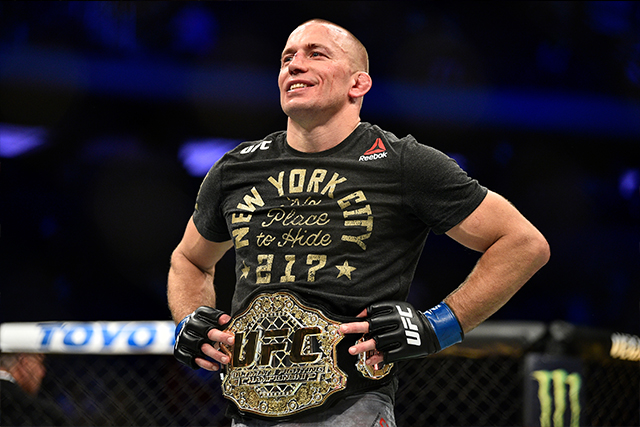UFC’s Talent Relations Choked Up in Licensing, Sponsorship Standoffs
Jake Rossen Jul 8, 2009
An excellent piece by
SportsIllustrated.com’s Josh Gross went up this week that
illuminates some of the rather brazen tactics employed by UFC brass
in recent months to help maintain their trachea-choke hold on the
MMA market -- and it’s not pretty reading.
Gross writes that the UFC has issued pre-emptive warfare on any fighter not currently affiliated with the promotion who dares to sign a licensing agreement with EA Sports, producers of 2010’s “MMA” video game title. The rationale, apparently, is that they have no interest in pushing an athlete to become a commodity for a rival product.
Understandable -- to a point. If the UFC has a fighter under
contract who hasn’t signed away his likeness rights, threatening
that athlete with termination if he “works” for opposing companies
is a reasonable bit of business. But the idea that the UFC will
attempt to exert influence over fighters who currently have
nothing to do with them is corporate demonology.No fighter
should have to measure an opportunity to make money against the
wrath of an entity they may never have a relationship with.
Gross quotes sources as saying some talent could make up to $15,000 for an EA deal. And they should turn this down based on the mere possibility of future UFC employment -- and the optimism that they won’t break a leg in their next fight, ending all opportunities for income? That’s deli baloney.
Less disturbing, but possibly more short-sighted, is the allegation that the UFC will now “tax” sponsors a blanket $100,000 fee for six months’ privilege of endorsing fighters. As brass would likely argue, it’s the event -- not the athlete -- that creates the exposure that makes sponsorships worthwhile. Since that audience is owed to the UFC’s infrastructure, a tithing is apparently mandatory.
For brands paying out hundreds of thousands to top-level athletes, this makes some sense. But if that blanket $100,000 fee applies to undercard laborers, the UFC is cutting off its own feet. Mid-tier fighters that struggle to make $15,000 or $20,000 a fight see this as a soluble career because sponsor money makes training, living and eating realistic. The UFC has built an arena that allows advertisers to subsidize income, which effectively lowers their bottom line: They actually have third parties paying their employees and offsetting costs. Isn’t that enough?
A better question for the UFC: Is it ever enough?
Gross writes that the UFC has issued pre-emptive warfare on any fighter not currently affiliated with the promotion who dares to sign a licensing agreement with EA Sports, producers of 2010’s “MMA” video game title. The rationale, apparently, is that they have no interest in pushing an athlete to become a commodity for a rival product.
Advertisement
Gross quotes sources as saying some talent could make up to $15,000 for an EA deal. And they should turn this down based on the mere possibility of future UFC employment -- and the optimism that they won’t break a leg in their next fight, ending all opportunities for income? That’s deli baloney.
Less disturbing, but possibly more short-sighted, is the allegation that the UFC will now “tax” sponsors a blanket $100,000 fee for six months’ privilege of endorsing fighters. As brass would likely argue, it’s the event -- not the athlete -- that creates the exposure that makes sponsorships worthwhile. Since that audience is owed to the UFC’s infrastructure, a tithing is apparently mandatory.
For brands paying out hundreds of thousands to top-level athletes, this makes some sense. But if that blanket $100,000 fee applies to undercard laborers, the UFC is cutting off its own feet. Mid-tier fighters that struggle to make $15,000 or $20,000 a fight see this as a soluble career because sponsor money makes training, living and eating realistic. The UFC has built an arena that allows advertisers to subsidize income, which effectively lowers their bottom line: They actually have third parties paying their employees and offsetting costs. Isn’t that enough?
A better question for the UFC: Is it ever enough?







